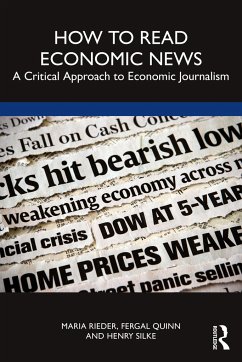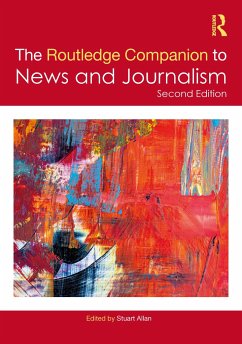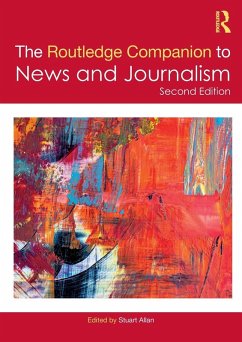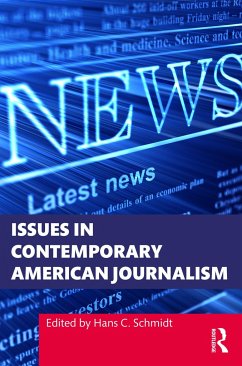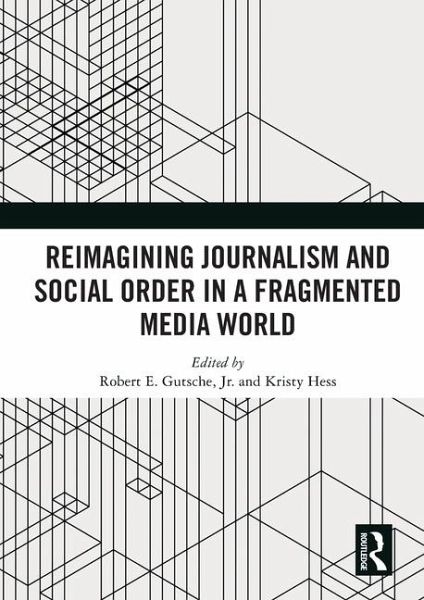
Reimagining Journalism and Social Order in a Fragmented Media World
Versandkostenfrei!
Versandfertig in 6-10 Tagen
43,99 €
inkl. MwSt.

PAYBACK Punkte
22 °P sammeln!
This book examines journalism's ability to promote and foster cohesive and collective action while critically examining its place in the intensifying battle to maintain a society's social order.From chapters discussing the challenges journalists face in covering populism and Donald Trump, to chapters about issues of race in the news, intersections of journalism and nationalism, and increased mobilities of audiences and communicators in a digital age, Reimagining Journalism and Social Order in a Fragmented Media World focuses on the pitfalls and promises of journalism in moments of social conte...
This book examines journalism's ability to promote and foster cohesive and collective action while critically examining its place in the intensifying battle to maintain a society's social order.
From chapters discussing the challenges journalists face in covering populism and Donald Trump, to chapters about issues of race in the news, intersections of journalism and nationalism, and increased mobilities of audiences and communicators in a digital age, Reimagining Journalism and Social Order in a Fragmented Media World focuses on the pitfalls and promises of journalism in moments of social contestation. Rich with perspectives from across the globe, this book connects journalism studies to critical scholarship on social order and social control, nationalism, social media, geography, and the function of news as a social sphere.
In a fragmented media world and in times of social contestation, Reimagining Journalism and Social Order in a Fragmented Media World provides readers with insights as to how journalism operates in order to highlight-and enhance-elements and actions that bring about order. This book was originally published as a special issue of Journalism Studies and a special issue of Journalism Practice.
From chapters discussing the challenges journalists face in covering populism and Donald Trump, to chapters about issues of race in the news, intersections of journalism and nationalism, and increased mobilities of audiences and communicators in a digital age, Reimagining Journalism and Social Order in a Fragmented Media World focuses on the pitfalls and promises of journalism in moments of social contestation. Rich with perspectives from across the globe, this book connects journalism studies to critical scholarship on social order and social control, nationalism, social media, geography, and the function of news as a social sphere.
In a fragmented media world and in times of social contestation, Reimagining Journalism and Social Order in a Fragmented Media World provides readers with insights as to how journalism operates in order to highlight-and enhance-elements and actions that bring about order. This book was originally published as a special issue of Journalism Studies and a special issue of Journalism Practice.










